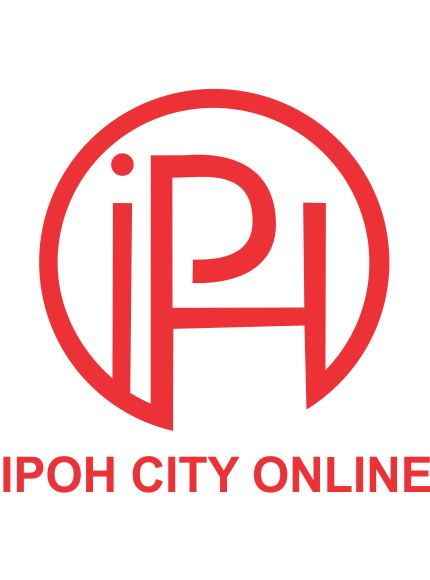Malaysia’s Universal Healthcare Reform: Learning from Singapore’s Experience to Build a Sustainable Healthcare System
Preface
In recent years, the rising cost of healthcare in Malaysia has placed a heavy burden on its citizens. The lack of effective regulation in private hospitals and insurance companies has led to uncontrolled medical costs, further exacerbating the problem. To address this challenge, the Malaysian government should draw on Singapore’s successful experience by collaborating with the Employees Provident Fund (EPF), the Social Security Organization (SOCSO), and the Ministry of Health (MOH) to establish a universal healthcare mechanism. This initiative aims to reduce the people’s healthcare burden and regulate the healthcare market.
I. Current Situation and Challenges
-
Rising Healthcare Costs: Healthcare expenses in Malaysia have been increasing year by year, particularly in private hospitals and insurance companies, making it difficult for many families to afford medical care.
-
Lack of Regulation in the Private Healthcare Market: Private hospitals and insurance companies operate without sufficient oversight, leading to issues such as overcharging and excessive medical treatments, which further drive up costs.
-
Inadequate Coverage of Existing Healthcare Systems: Malaysia’s current healthcare system has limited coverage, leaving many low-income groups and self-employed individuals without adequate medical protection.
II. Lessons from Singapore’s Experience
Singapore’s healthcare insurance system is renowned for its efficiency, sustainability, and wide coverage. Its key features include:
-
Mandatory Central Provident Fund (CPF) System: Singapore’s CPF requires both employers and employees to contribute, with a portion of the funds specifically allocated to healthcare (MediSave Account).
-
Multi-Tiered Healthcare System: Singapore has established a multi-tiered healthcare system, with MediShield Life as the foundation and Integrated Shield Plans as supplements, catering to the needs of different groups.
-
Government Leadership Combined with Market Mechanisms: The Singaporean government plays a leading role in the healthcare system while introducing market mechanisms to encourage competition and improve efficiency.
III. Proposal for Malaysia’s Universal Healthcare Mechanism
Drawing on Singapore’s experience, Malaysia can establish the following universal healthcare mechanism:
1. Establish a Mandatory Medical Savings Account
-
Managed jointly by EPF and SOCSO, a mandatory medical savings account would require all employees and employers to contribute a portion of their wages.
-
Funds in the account can be used to cover hospitalization, surgery, outpatient care, and other medical expenses for individuals and their immediate family members.
2. Introduce a Universal Basic Health Insurance
-
Led by MOH, a universal basic health insurance would be introduced to cover all citizens and permanent residents, providing protection against major illnesses and long-term hospitalization costs.
-
Premiums would be deducted from the medical savings account, with the government offering subsidies for low-income groups.
3. Encourage the Development of Supplementary Health Insurance
-
Private insurance companies would be encouraged to develop supplementary health insurance products, offering more comprehensive coverage and higher reimbursement rates.
-
The government would strictly regulate these products to prevent overcharging and excessive medical treatments.
4. Strengthen Healthcare Market Regulation
-
The government would enhance oversight of private hospitals and insurance companies, setting reasonable fee standards to prevent overcharging and excessive treatments.
-
A healthcare service quality evaluation system would be established, with regular publication of results to guide patients in choosing high-quality medical services.
IV. Expected Benefits
-
Reduce the People’s Healthcare Burden: The universal healthcare mechanism would effectively lower the healthcare burden on citizens, particularly for low-income groups and self-employed individuals.
-
Regulate the Healthcare Market: A government-led universal healthcare mechanism would regulate the market, preventing private hospitals and insurance companies from overcharging and providing excessive treatments.
-
Improve Accessibility to Healthcare Services: The universal healthcare mechanism would enhance access to healthcare services, enabling more people to receive quality medical care.
V. Conclusion
Establishing a universal healthcare mechanism is an essential step for Malaysia to address rising healthcare costs and protect the people’s right to health. By learning from Singapore’s successful experience, Malaysia can build an efficient, sustainable, and widely accessible universal healthcare system, providing its citizens with high-quality and affordable medical services.
Recommendations:
-
The government should promptly establish a dedicated task force to study and develop a detailed implementation plan for the universal healthcare mechanism.
-
Broad consultations with all sectors of society should be conducted to build consensus and ensure the smooth implementation of the mechanism.
-
Public education campaigns should be strengthened to increase awareness and understanding of the universal healthcare mechanism.
Special Emphasis:
Private hospitals and insurance companies are profit-driven entities. Therefore, when it comes to the welfare of the people’s healthcare, the government must not delegate this responsibility to these institutions. If the government does not take the lead, healthcare and insurance costs will eventually skyrocket, making them unaffordable for ordinary citizens. This is evident in the current situation in the United States, where a single serious illness can lead to bankruptcy due to medical expenses. Therefore, healthcare reform is urgent, and the government must take the lead to ensure the fairness and sustainability of the universal healthcare mechanism.
With the government’s leadership, Malaysia can undoubtedly establish a comprehensive universal healthcare system to safeguard the health of its people.


